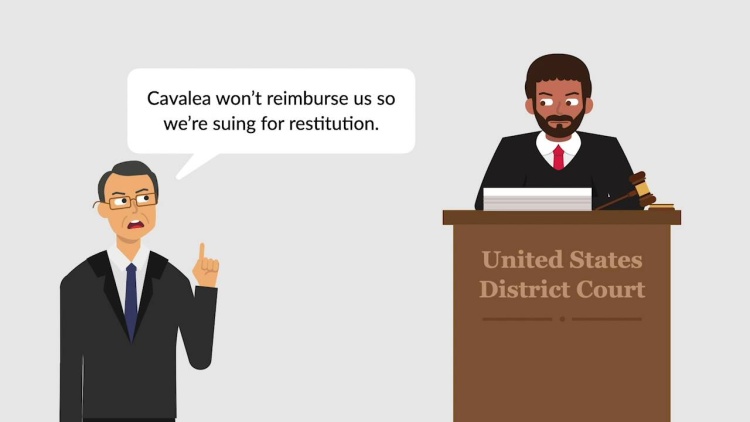Burns Philp Food, Inc. v. Cavalea Cont'l Freight, Inc.
United States Court of Appeals for the Seventh Circuit
135 F.3d 526 (1998)

- Written by Denise McGimsey, JD
Facts
Burns Philp Food, Inc. (Burns) (plaintiff) and Cavalea Cont’l Freight, Inc. (Cavalea) (defendant) purchased adjacent portions of industrial real estate in Chicago. Because of an error in the property records, Burns mistakenly paid property taxes on land owned by Cavalea over a number of years. When Burns informed Cavalea of the mistake, Cavalea refused to reimburse Burns. Burns then sued Cavalea in a federal district court for restitution. Cavalea filed a counterclaim, alleging that Burns had erected a fence that trespassed on Cavalea’s property. Receipt of the counterclaim was the first time Burns received notice of the alleged trespass. Burns had erected the fence along what it believed to be the property line, based on a survey of the land. The surveying job was poorly done, however. Thus, the fence effectively gave Burns 2,000 square feet of Cavalea’s land. Cavalea had been aware of the trespass for some period of time before filing the counterclaim. The fence was dismantled the following year. After a nonjury trial, the court ruled that Burns was entitled to recover five years of taxes paid on Cavalea’s land and that Cavalea was not entitled to damages for Burns’s trespass because Cavalea had failed to provide notice thereof. The district judge acknowledged that requiring notice was not necessarily consistent with the traditional law of trespass but that it was proper in the instant case as a matter of “elemental justice.” Both parties appealed.
Rule of Law
Issue
Holding and Reasoning (Easterbrook, J.)
What to do next…
Here's why 907,000 law students have relied on our case briefs:
- Written by law professors and practitioners, not other law students. 47,100 briefs, keyed to 996 casebooks. Top-notch customer support.
- The right amount of information, includes the facts, issues, rule of law, holding and reasoning, and any concurrences and dissents.
- Access in your classes, works on your mobile and tablet. Massive library of related video lessons and high quality multiple-choice questions.
- Easy to use, uniform format for every case brief. Written in plain English, not in legalese. Our briefs summarize and simplify; they don’t just repeat the court’s language.








